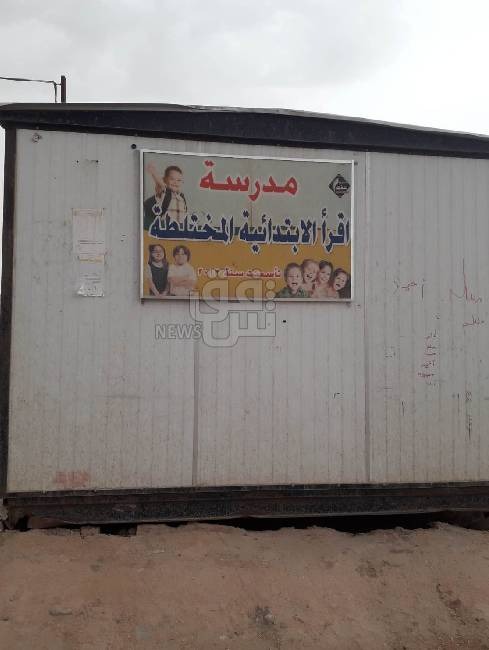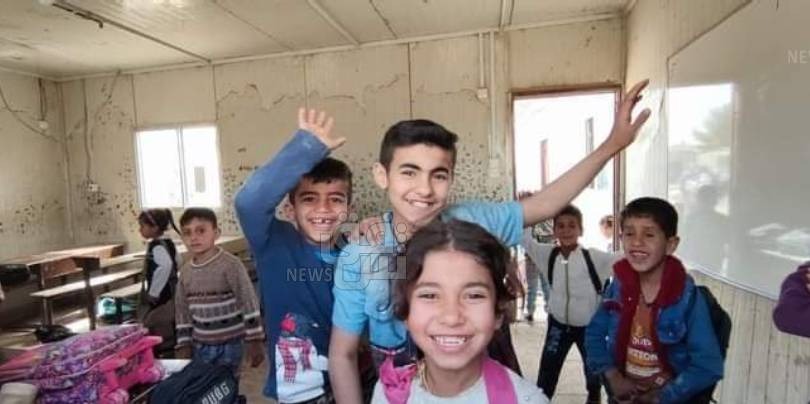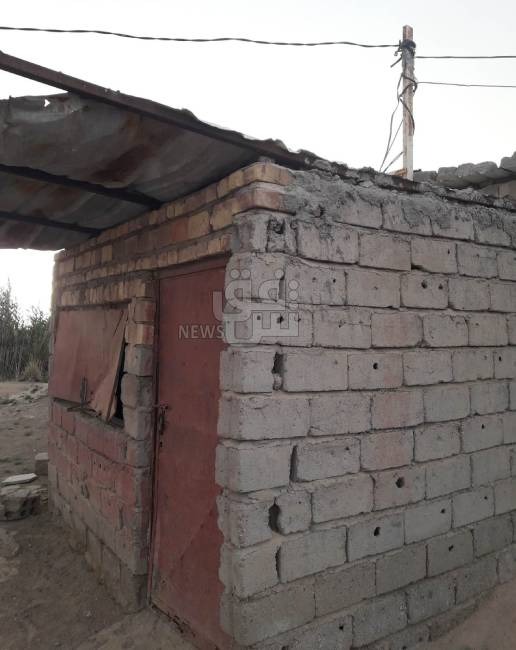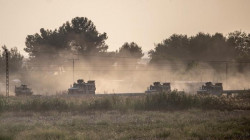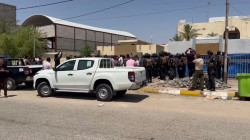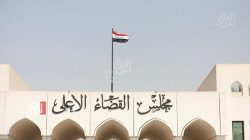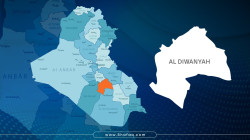Afeg district: navigating catastrophic challenges and neglected infrastructure
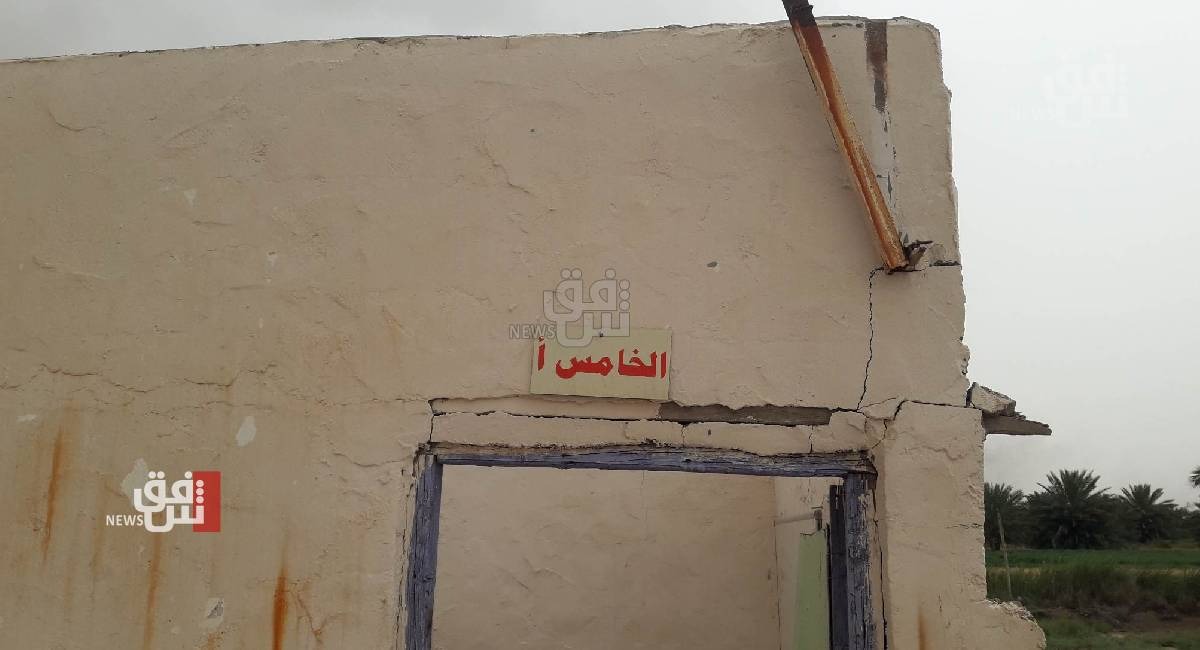
Shafaq News/ Experiencing a severely disquieting state of affairs, the Afeg district, located within the Diwaniyah governorate, suffers from a distinct paucity of essential services and a degenerating infrastructure. The dearth is most acute in the sectors of education and healthcare, where the lack of facilities poses significant obstacles for the residents. Additionally, the district is in the throes of an intensifying water crisis, causing considerable destruction to the agricultural sector, once a vital lifeline for the district. A concurrent surge in youth unemployment adds a further layer of complexity to this distressing scenario, pushing the district towards the brink of uninhabitability.
The geographical coordinates of the Afeg district, situated in the Middle Euphrates region, mark it as being 30 km northeast of Diwaniyah and approximately 180 km south of the nation's capital, Baghdad.
Governmental data dating back to 2014 suggest that the Afeg district is home to a population of around 180,000 individuals. A significant majority of these residents are engaged in agricultural pursuits and livestock rearing, roles that are facilitated by the district's abundant farmland. With wheat and barley production serving as the primary agricultural output, these commodities undoubtedly hold great value for the district.
" Residents of the Afeg district endure an array of critical challenges daily, comparable to those experienced by their counterparts in other districts, sub-districts, villages, and even at the heart of the governorate. This predicament, expressed by political activist Ammar al-Mayahi, is attributed to a rapidly decaying infrastructure, a stark shortage of essential services, a critical water crisis, and the desolation of the Afeg River. Amidst these pressing issues, there appears to be a profound absence of governmental initiatives to tackle these trials. Al-Mayahi elaborated, "The Afeg district is bereft of even the most basic necessities required for a dignified existence. Its state is catastrophic. There will be no transformation unless the state revises its approach to handling these crises, as the local government and district administration appear to have been egregiously remiss in fulfilling their responsibilities."
A resident of Afeg, Abu Ali, corroborated Al-Mayahi's assertions, noting the lack of attention the district has received from successive governments. This inattention, he states, has resulted in a disconcerting lack of services, neglect, and deficiencies in critical infrastructure such as road paving, schools, and hospitals. An equally disheartening consequence is the demise of agriculture, a fact that has spurred migration from the district to the city, particularly among farmers.
Activist Saif Ali al-Ghalibi, another resident of the district, directed attention to the precarious state of the local schools. He elucidated, "There are schools housed in caravans on the verge of collapse, while others have already been demolished." He further elaborated on the condition of specific schools: "The Iqra primary mixed school is demolished; the Jolan school is about to collapse; and the Hussein school is nothing more than a caravan."
In a conversation with the Shafaq News Agency, Al-Ghalibi added a grave observation regarding the scarcity of schools and the resulting hazardous journeys that students undertake. He recounted a recent tragedy where a student lost their life while navigating the district's main thoroughfare, a poignant reminder of the life-threatening circumstances faced by the district's youngest residents.
In the realm of water access, al-Ghalbi painted a dire picture. He revealed, "The district is beleaguered by an extreme water crisis, compelling inhabitants of the district’s villages - Al Barjood, al-Karinat, al-Hizamat, Sayed Ghazi, al-Thureyma among others - to resort to digging wells. The water extracted, however, is saturated with sulfur, leading to deleterious effects such as hair loss and skin diseases when used for washing."
Compounding the situation, the Afeg River has been heavily polluted by sewage discharge, while residents continue to bear the financial burden of paying 11,000 dinars per tank for drinkable water.
As for the district's industrial sector, al-Ghalbi noted, "Afeg district hosts asphalt, brick, and textile factories, all of which are presently shuttered. This has resulted in soaring unemployment rates among the district's youth and graduates, forcing many to leave and seek employment in other governorates."
Further exacerbating the deplorable state of affairs, al-Ghalbi stated, "The district does not boast a single conventional street, nor a children's playground, and the municipality's parks are in a state of disrepair, lacking both lighting and children's games."
Amid the district's pervasive lack of services, the residents also wrestle with the inability to voice their concerns. Al-Ghalbi warned, "Out of fear of potential lawsuits, the district's citizens are often reticent to speak out about their hardships or demand their rights. Attempts to quash dissent have engendered a climate of fear to the extent that individuals are apprehensive about even posting about their lived experiences."
Meanwhile, Afeg district’s administrator, Majid al-Manthour, acknowledged the serious water shortage in the district, calling for the Directorate of Water Resources to devise swift solutions, especially given the district's and the governorate's reliance on agriculture. Al-Manthour elaborated, "The Directorate of Water Resources operates four basin vehicles to transport water to the villages. Moreover, the 2023 budget includes provisions for the installation of a raw water pipe to the complexes in the villages, which will somewhat mitigate the water scarcity."
In relation to education, he informed, "Work is underway on four schools in the district funded by a Chinese loan, with 60 to 70% of the work completed. Once finished, the double-shift system in schools will be eliminated. Notably, unlike other districts, there are no instances of triple or quadruple shifts here."
On the topic of municipal services, al-Manthour clarified, "The paving of streets has been temporarily suspended until the sewer network, earmarked in the 2023 budget, becomes operational."

